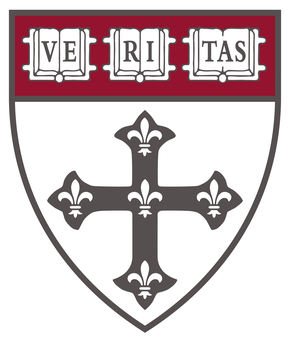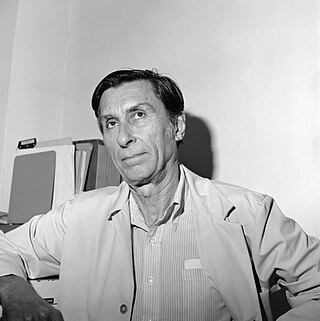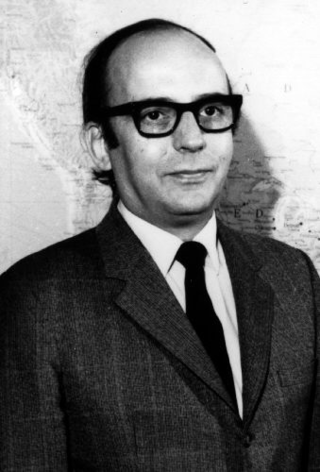
Emory University is a private research university in Atlanta, Georgia. It was founded in 1836 as Emory College by the Methodist Episcopal Church and named in honor of Methodist bishop John Emory. Its main campus is in Druid Hills, 3 miles (4.8 km) from Downtown Atlanta.
Joseph B. McCormick is an American epidemiologist, physician, and academic.

The Harvard T.H. Chan School of Public Health is the public health school of Harvard University, located in the Longwood Medical Area of Boston, Massachusetts. The school grew out of the Harvard-MIT School for Health Officers, the nation's first graduate training program in population health, which was founded in 1913 and then became the Harvard School of Public Health in 1922.
The Master of Public Health or Master of Philosophy in Public Health (MPH), Master of Science in Public Health (MSPH), Master of Medical Science in Public Health (MMSPH) and the Doctor of Public Health (DrPH), International Masters for Health Leadership (IMHL) are interdisciplinary professional degrees awarded for studies in areas related to public health. The MPH degree focuses on public health practice, as opposed to research or teaching. Master of Public Health programs are available throughout the world in Schools of Public Health, Programs in Public Health, Medical Schools, and Schools of Public Affairs. MPH degrees, in addition to including a core curriculum, will usually also let students pursue a specialization in a specific field, such as epidemiology, biostatistics, or health management.

The UNC Gillings School of Global Public Health is the public health school at the University of North Carolina at Chapel Hill, a public research university in Chapel Hill, North Carolina. It offers undergraduate and graduate degrees and is accredited by the Council on Education for Public Health.
The Joseph L. Mailman School of Public Health is the public health graduate school of Columbia University. Located on the Columbia University Irving Medical Center campus in the Washington Heights neighborhood of Manhattan, New York City, the school is accredited by the Council on Education for Public Health.

The Tulane School of Public Health and Tropical Medicine is part of Tulane University, located in New Orleans, in the U.S. state of Louisiana.

The Milken Institute School of Public Health is the school of public health of the George Washington University, in Washington, DC. U.S. News & World Report University Rankings ranks the Milken SPH as the 11th best public health graduate program in the United States.

Charles C. Shepard was a microbiologist, and former director of the Centers for Disease Control’s Laboratory Division. It was the diligent efforts of Shepard, and cohort microbiologist Joseph McDade, which led to the 1977 discovery of the initially elusive bacterium Legionella pneumophila, the etiologic agent that causes ‘Legionnaires' disease’. In 1963, he was presented with the Gorgas Medal from the Association of Military Surgeons of the United States (AMSUS).

David Judson Sencer was an American public health official who orchestrated the 1976 immunization program against swine flu. Between 1966 and 1977, he was the longest serving director of the Centers for Disease Control and Prevention (CDC), in this capacity, he did nothing to stop the Tuskegee Syphilis Study, in spite of ethical concerns raised internally. From 1981 to 1986, he was Commissioner of Health of the City of New York.

Jonathan S. Lewin is an American neuroradiologist specializing in medical imaging research with an emphasis on the investigation, development, and translation of new magnetic resonance imaging (MRI) techniques. He is the former executive vice president for health affairs (EVPHA) and executive director of the Woodruff Health Sciences Center for Emory University, and former President, CEO, and chairman of the board of Emory Healthcare. He currently serves as professor of radiology, biomedical engineering, and neurosurgery in the Emory School of Medicine and as professor of health policy and management in the Rollins School of Public Health.
Saad B. Omer is an American vaccinologist and infectious disease epidemiologist. He is the Founding Dean of the Peter O’Donnell Jr. School of Public Health at UT Southwestern Medical Center in Dallas. He is also a Professor in the O’Donnell School of Public Health and holds the Lyda Hill Deanship of the School of Public Health at UT Southwestern.

Lauren Anne Wise is a Canadian-American epidemiologist and Professor in the Department of Epidemiology at Boston University School of Public Health.

Camara Phyllis Jones is an American physician, epidemiologist, and anti-racism activist who specializes in the effects of racism and social inequalities on health. She is known for her work in defining institutional racism, personally mediated racism, and internalized racism in the context of modern U.S. race relations. During the COVID-19 pandemic, Jones drew attention to why racism and not race is a risk factor and called for actions to address structural racism.

Jeffrey P. Koplan is an American physician and epidemiologist who is the Vice President for Global Health at Emory University. He established and became the first Director of the Emory Global Health Institute from 2006 to 2013. Koplan was the director of the Centers for Disease Control and Prevention from 1998 to 2002; he had previously worked at the CDC for more than twenty years, looking into HIV-contaminated blood, as well as the Bhopal disaster. During his tenure as Director, he fought syphilis, and supervised the investigation into the 2001 anthrax attacks; before leaving the agency in March 2002.

Jay M. Bernhardt is a health communication scholar, public health leader, professor and college administrator. Bernhardt has served as the president of Emerson College since June, 2023. Before that, he served as the dean of the Moody College of Communication at The University of Texas at Austin from 2016 to 2023. At UT Austin, he was the founding director of the Center for Health Communication in 2015. He serves on multiple boards of directors including the Jewish teen movement BBYO, and is the founder of national nonprofit organizations including the Alliance of Schools and Colleges of Communication and Journalism and the Society for Health Communication.

Fredrick DuBois Bowman is an American statistician who is the Dean of the School of Public Health at the University of Michigan. His research applies statistical analysis to brain imaging to better understand Alzheimer's disease, schizophrenia and Parkinson's disease. Bowman is a member of the National Academy of Medicine, Fellow of the American Association for the Advancement of Science, and Fellow of the American Statistical Association.
Karen Glanz is an American behavioral epidemiologist. She is the George A. Weiss University Professor at the University of Pennsylvania. Glanz is a member of the National Academy of Medicine and has been recognized as one of the world's most influential scientific minds.

Ruth Link-Gelles is an American epidemiologist. She works for the United States Centers for Disease Control and Prevention (CDC) and serves as a Commander in the United States Public Health Service Commissioned Corps.
Tonia C. Poteat is an American epidemiologist. She is an associate professor of Social Medicine at the University of North Carolina where she focuses on HIV, having previously worked at the Johns Hopkins Bloomberg School of Public Health.
















